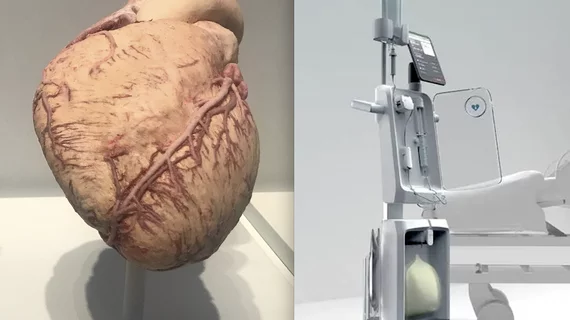Heart failure startup emerges with $42 million in financing for its intelligent fluid management system
Reprieve Cardiovascular Inc. announced this week it has raised $42 million in series A financing to advance clinical trials for its automated diuretic and fluid management treatment for acute decompensated heart failure (ADHF). The company said its technology will help reduce the high rate of readmissions.
The total round was co-led by Lightstone Ventures and Sante Ventures and joined by Deerfield Management, Genesis Capital and Arboretum Ventures. The funding will advance the company’s clinical programs, including the ongoing FASTR trial and its upcoming pivotal trial.
“Today, the standard of care for heart failure patient fluid removal is diuretics. Originally approved 60 years ago, diuretics remain the primary treatment option, but can be difficult to administer optimally without real-time patient information,” Mark Pacyna, chief executive officer of Reprieve Cardiovascular said in a statement sent to Health Imaging. Pacyna was formerly vice president general manager for Medtronics peripheral vascular portfolio.
Reprieve's technology is intended to personalize decongestion management and safely, quickly and completely remove excess fluid to improve patient outcomes and prevent hospital readmissions. The system monitors physiological parameters, such as urine output, to deliver personalized diuretic dosing and fluid replacement for patients with ADHF, providing physicians and care teams added visibility and control throughout treatment.
“We’re excited to share the Reprieve story as the company emerges from stealth mode ahead of their pivotal trial,” Jan Garfinkle, founding and managing partner of Arboretum Ventures said in the statement. “The series A funding reinforces our belief in the Reprieve team, and in the need for a new technology that can improve the lives of patients suffering from acute decompensated heart failure around the world.”
The company's Board of Directors includes James Udelson, MD, Tufts chief of cardioligy; Michael Jaff, DO, vice president clinical affairs, Boston Scientific; Javed Butler, MD, president, Baylor Scott and White Research Institute; Sean Collins, MD, director, Center for Emergency Care Research and Innovation, Vanderbilt; Julia Lewis, MD, professor of medicine, Division of Nephrology and Hypertension, Vanderbilt; and Jeff Testani, MD, director of heart failure research, Yale.
More than 6.7. million Americans are living with heart failure today. [1] ADHF is caused by a rapid onset of fluid volume overload. Over 1 million patients a year are admitted with a primary heart failure diagnosis in the U.S., and millions more around the world, with an average hospital stay of more than five days. [2,3] Nearly 1 in 4 patients are readmitted to the hospital within 30 days to re-treat fluid volume overload, and approximately half are back within six months. [4]

